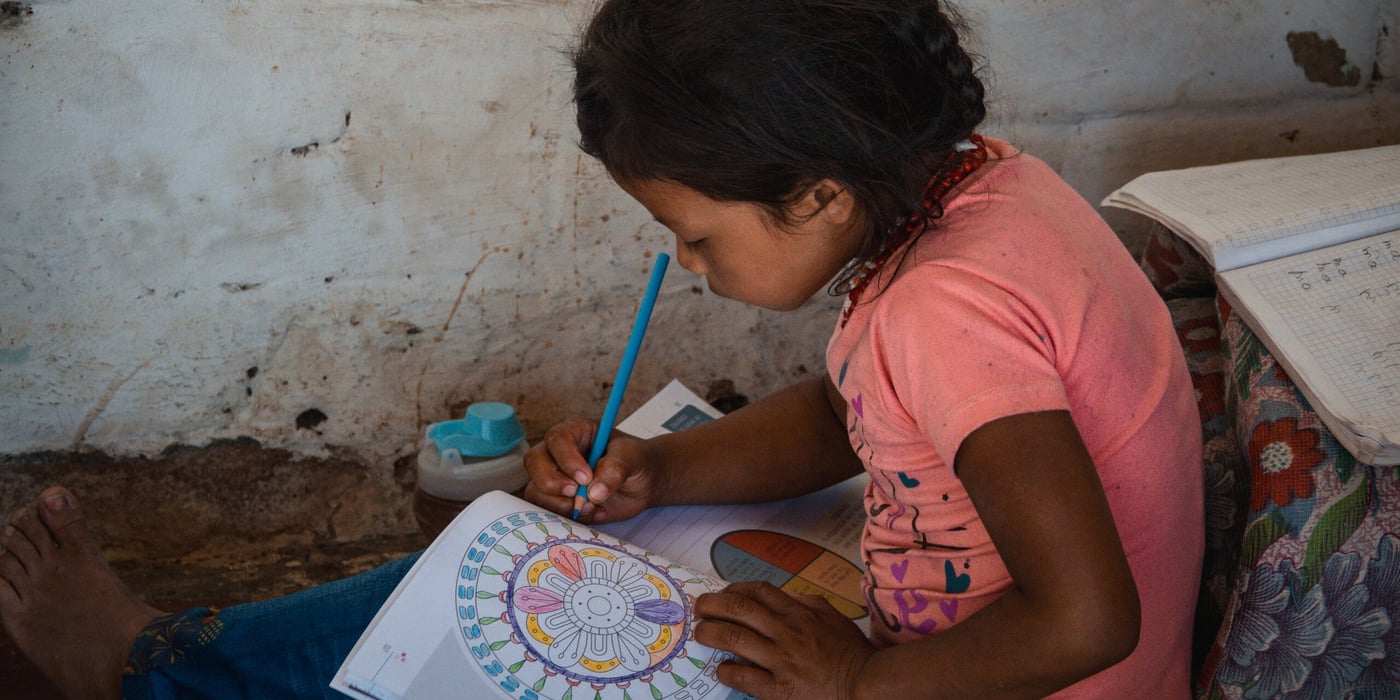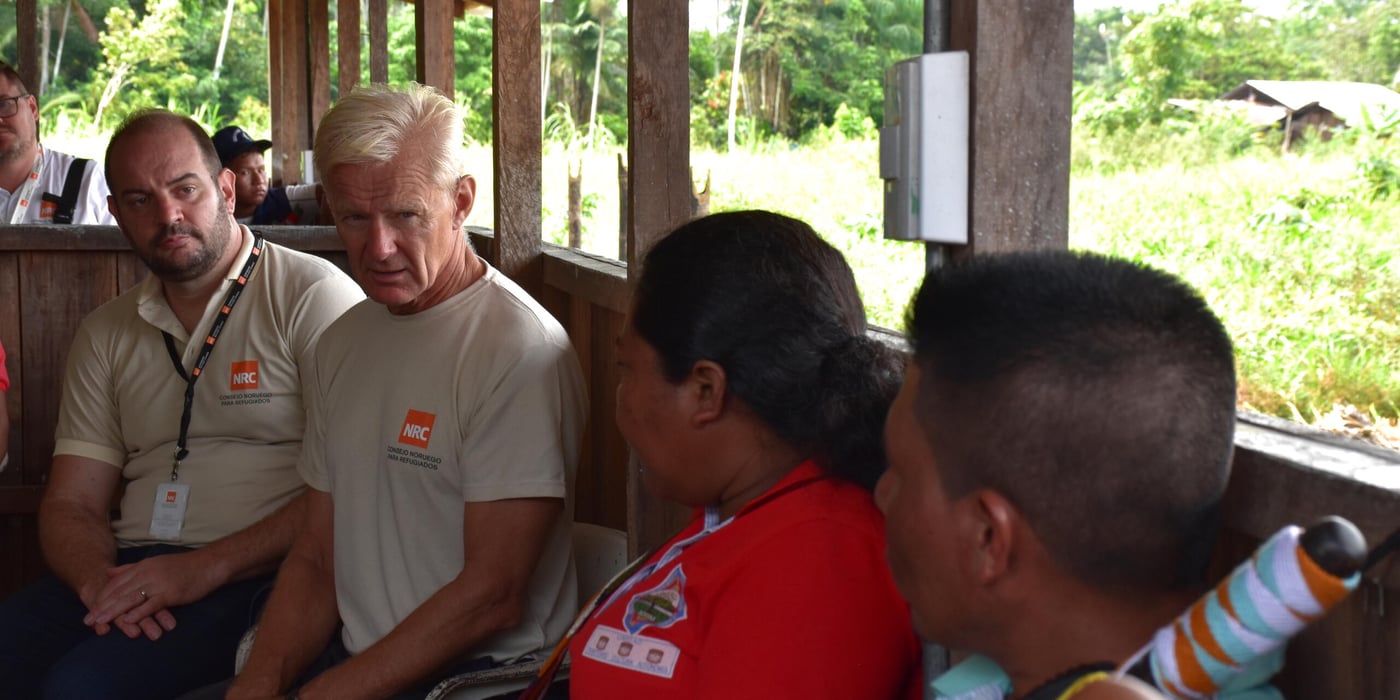
On the 17th of March 2015, the indigenous peoples fled Timbiquí in Cauca, southwest of Colombia.
“An illegal armed group took control over Timbiquí. They refused to let the indigenous peoples travel freely or gather food and they blocked the food supplies of the government. They starved,” says David Garcia, adviser at NRC’s office in Colombia.
Now, the indigenous peoples are back in their ancestors land, but the armed conflict in the country has made them more vulnerable than ever.
“In order to defend their rights in the Colombian court system, the indigenous peoples in Colombia rely completely on education,” says Pål Nesse, senior adviser at NRC.

Cauca is an area lacking infrastructure and in some places there is no school system at all. NRC travelled to the area and mapped out the needs.
“We identified that the existing classrooms were in a very poor condition and there was not enough room for the children,” says David Garcia.
In the periods between 2014 and 2015, NRC built temporary classrooms for the indigenous communities La Peña and in La Union Malaga in Cauca. These classrooms do not only provide education for the children, they have become a cultural center for the community.
“Through this initiative, the children now have a safe space for learning, but they are not the only ones taking advantage of this. The leaders of the community now have a place where they can gather ad learn how to respond to crises and defend their rights,” says David Garcia.






